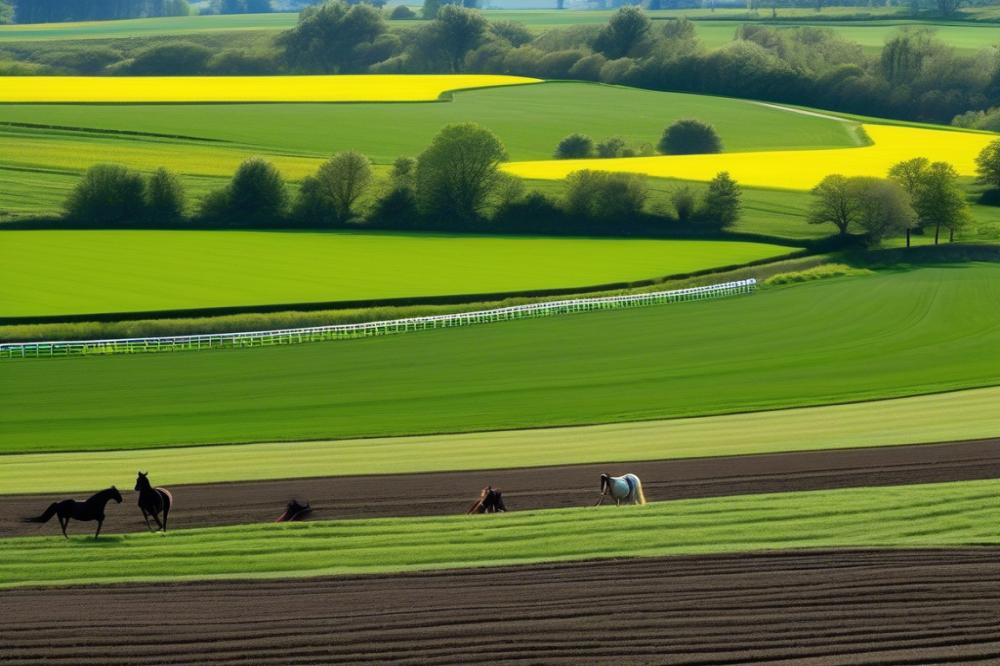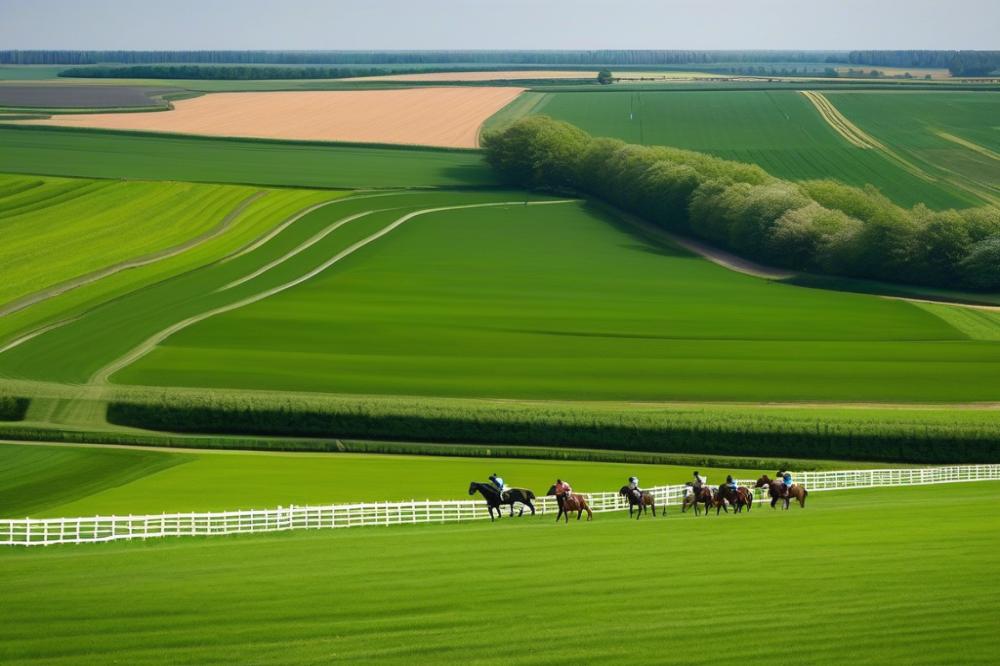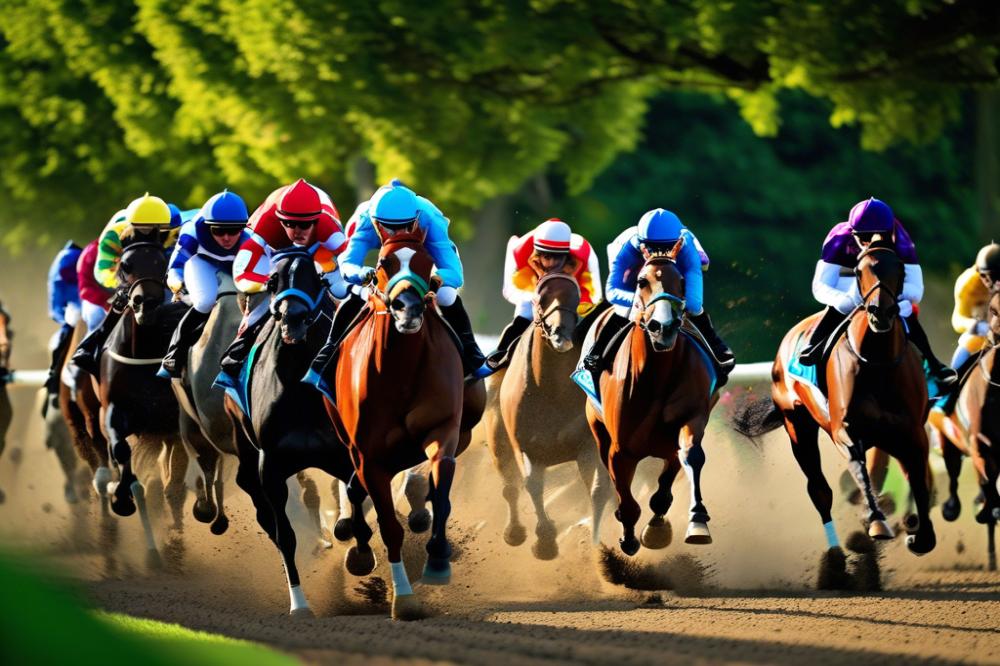Introduction
Horse racing is a significant part of European culture. It attracts millions of fans and generates substantial revenue. Events like the Grand National and the Prix de l’Arc de Triomphe capture the public’s attention. Enthusiasts enjoy the thrill of competition and the beauty of the animals. However, this vibrant sport also faces serious challenges.
Understanding the importance of taking care of horses is vital in this context. These animals play a central role in racing, and their well-being cannot be overlooked. Owners, trainers, and organizations must prioritize their care. If horses are not healthy and happy, the sport suffers. The relationship between horses and their human partners should be built on trust and respect.
The Netherlands presents an interesting case. The country has made strides in balancing Horse Welfare with the demands of Modern Racing. Exploring this delicate balance is essential, as it can serve as a model for others. By examining how Dutch authorities address these issues, we can learn valuable lessons. The goal is to find harmony between the interests of the sport and the needs of the horses.
Horse Welfare in the Netherlands

Understanding horse welfare is vital in the context of equine sports. It primarily refers to the physical and mental health of horses. In many areas, it is increasingly considered a reflection of societal values. People want to see that animals are treated well, leading to focused discussions about their care at all levels.
Current Practices in equine care
In the Netherlands, equine care practices have evolved significantly. Owners are often educated about nutrition, exercise, and proper housing. Many facilities incorporate natural environments to support the horses’ well-being. Regular grooming and daily exercise routines are common among dedicated horse lovers. Riding schools also teach students the importance of caring for their mounts. This approach not only benefits the horses but also fosters a deeper bond between them and their caretakers.
Impact of Breeding Standards on Horse Welfare
Breeding standards play a crucial role in the welfare of horses in the racing world. Stricter guidelines have emerged to prioritize health over speed. Quality of life is now considered alongside performance potential. As a result, there is increased emphasis on selecting breeds that are less prone to injury and illness. This shift helps ensure that horses are physically capable of handling the demands of racing without suffering undue stress.
Role of Veterinary Care in Maintaining Health
Veterinary care remains essential for keeping horses healthy. Regular check-ups and vaccinations help prevent diseases. Many trainers and owners consult veterinarians to create personalized care plans. These plans often include dietary recommendations tailored to a horse’s specific needs. Additionally, advancements in veterinary medicine allow for better diagnostics and treatments. Such measures protect horses and enhance their longevity, ensuring they can enjoy their lives beyond racing.
Regulations and Standards in Modern Racing

Overview of racing regulations in the Netherlands
In the Netherlands, horse racing operates under strict regulations designed to protect the animals. The Dutch Authority for the Horse Racing Industry sets comprehensive rules. These regulations cover everything from medical care to racing conditions. Every race venue must meet specific standards to ensure safety for the horses and jockeys. Licensing is also required for trainers and owners, promoting a sense of accountability. Surprises are rare during inspections, as organizations frequently check compliance.
How regulations promote horse welfare
Many of these regulations focus directly on the well-being of the horses. For instance, veterinarians are present at racetracks to monitor health. Veterinary checks before and after races are mandatory. If a horse shows signs of distress, immediate action is taken. Training practices must follow guidelines that prioritize the animal’s physical and mental health. By conducting regular audits, authorities maintain high welfare standards.
Comparison with regulations in other European countries
When comparing Dutch regulations to those in other European nations, some differences stand out. Countries like France and the UK also emphasize animal care, but their methods can vary. French regulations include a strong focus on medication control. In the UK, there are extensive guidelines on racecourse safety. Each country has its approach, but the underlying goal remains the same. All nations strive to balance racing excitement with the necessity of animal welfare.
Challenges faced in enforcing these regulations
Despite rigorous rules, enforcement is not always straightforward. Limited resources sometimes hinder the ability to monitor all racing events. Local authorities may struggle to maintain frequent inspections. Another challenge arises from the different interpretations of regulations by trainers and owners. Misunderstandings can lead to lapses in compliance. Additionally, the racing industry often faces pressure to allow more lenient practices. This tension between regulations and racing interests complicates efforts to uphold standards.
Sustainable Practices in Horse Racing
Sustainable practices in horse racing refer to methods that prioritize the wellbeing of horses while addressing environmental issues. These approaches aim to reduce ecological footprints and promote humane treatment. A balance is sought between competitive racing and responsible care of the animals.
In the Netherlands, some notable examples have emerged. Racing venues are increasingly using renewable energy sources, like solar and wind power. Composting organic waste from stables has become a common practice. Additionally, many training centers prioritize natural grazing areas instead of artificial surfaces, promoting healthier living conditions for the horses. These strategies not only make races more eco-friendly but also their operations more efficient.
Benefits for animal care go beyond immediate welfare. Improved landscaping and better waste management contribute positively to local ecosystems. Healthier horses tend to perform better, which is a win-win for trainers and owners. Moreover, engaging in sustainable methods prices the industry positively in the eyes of the public. As communities become aware of these practices, they often grow more supportive of local racing events.
Ultimately, the overall racing industry gains from these initiatives. A reputation for responsible practices attracts more fans, boosting attendance at events. This increased interest encourages additional investment into better facilities and care standards. Furthermore, sustainability efforts can lead to partnerships with environmental organizations, fostering a culture of responsibility. Both horses and the environment stand to benefit as racing evolves.
Jockey Training and Racing Integrity
Professional jockey training plays a crucial role in the world of racing. It equips riders with the skills needed to manage their horses effectively. Aspiring jockeys often undergo rigorous programs that cover various aspects of both riding and horse care. This foundation is essential for ensuring that horses are treated well during races.
Training programs in the Netherlands often emphasize animal welfare. Jockeys learn how to recognize signs of distress and fatigue in horses. Understanding a horse’s behavior helps riders make better decisions while racing. Knowledge of nutrition and proper grooming is also part of this education. With this approach, riders not only focus on competition but also on the health of their mounts.
Maintaining integrity in racing is paramount. Regulatory bodies monitor races closely, implementing strict rules to prevent cheating and misconduct. Transparency is key, with regular inspections and vet checks for horses. These measures build public trust in the sport, encouraging a level playing field for all competitors.
Public awareness is essential in promoting responsible practices in racing. Organizations and racing authorities launch campaigns to educate fans and owners about humane treatment. Encouraging conversations about horse welfare raises consciousness in the community. When people know more about the issues, they can advocate for higher standards. As a result, everyone benefits from a commitment to integrity in the racing world.
Animal Rights and Public Perception
Animal rights movements have gained significant momentum in the Netherlands. Organizations dedicated to animal welfare work tirelessly to advocate for better treatment of all animals, including racehorses. These groups often raise awareness about the risks and challenges that horses face in racing. Their campaigns have connected with many people who care deeply about animals. As a result, public opinion has shifted, creating a greater demand for change within the racing industry.
Concerns about racehorses’ treatment have influenced how racing is conducted. The public is increasingly aware of the conditions that these animals encounter. This awareness often leads to criticism of racing practices. Many people question whether the excitement of racing is worth the potential harm to horses. Racing organizations must navigate this complex landscape where public sentiment can sway opinions and impact attendance.
To address these animal rights concerns, racing organizations have implemented several measures. They are working to ensure transparency in the treatment of racehorses. Initiatives like enhanced veterinary checks and stricter regulations are now commonplace. This approach seeks to reassure the public that horses are cared for properly. Additionally, many organizations are following guidelines set forth by animal welfare advocates.
Engaging the community is essential for racing organizations. They utilize various strategies to connect with the public on animal welfare matters. Social media campaigns featuring responsible practices and success stories are common. Through educational programs, they aim to inform people about the care and training that goes into maintaining a racehorse’s health. Open dialogue helps build trust and dispels misconceptions surrounding the sport.
Wrapping Up the Balance Between Welfare and Racing
The challenges of modern racing are complex. However, the Netherlands has made strides in addressing these issues. Regulations aimed at keeping horses safe show a commitment to their overall well-being. The country’s focus on equine care highlights a growing awareness of the need for better standards in the industry.
We’ve explored several key points. Education for trainers and jockeys plays a vital role in promoting best practices. Innovative techniques in injury prevention and recovery also stand out. The involvement of veterinary professionals in race day preparations is crucial, ensuring that each horse receives the attention it deserves.
Looking forward, prospects for horse welfare in racing remain hopeful. With continuous advancements in technology and training methods, the future can be bright. Greater transparency in racing operations will also likely improve public perception. A culture of accountability should lead to safer environments for these animals.
Ultimately, balancing welfare with the realities of modern racing is essential. Stakeholders must find common ground to create an industry that values both competition and compassion. The journey won’t be easy, but the commitment to enhancing the treatment of racing horses is clearly moving in a positive direction. A united effort can pave the way for a racing future that serves both athletes and animals alike.



